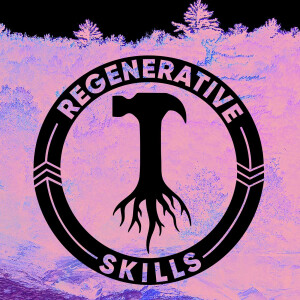
Friday Sep 02, 2022
Mateusz Ciasnocha on understanding the coming changes to the European common agriculture policy (CAP)
Ever since moving to Europe three years ago, I’ve been working to understand both the differences and similarities between the cultural, societal, and governmental background that I’m more familiar with from the USA and Mesoamerica compared to Spain and the larger European Union. Especially since my work is centered around agriculture and how we can set up the infrastructure to assist growers on this continent who want to shift to regenerative management, I need to first gain an understanding of what has incentivised and built the system we currently have. One of the largest influences that governs and regulates how people all around the different parts of Europe farm and manage land is the Common Agriculture Policy, known as the CAP. In order to get a better understanding of the complex history and nuanced current reality of the CAP, I reached out to my friend and colleague in Climate Farmers, Mateusz Ciasnocha, our Policy & Industry Advocacy Lead in the company. In this episode, Mateusz explains a bit about the history of the CAP and how it’s been used to accomplish its stated goal of creating food security as well as its effect on the development of the agricultural sector in Europe in the past decades. He also helps me to understand how the different countries within the European Union work within the CAP as well as its differences in implementation in each member country. From there we talk about how the CAP will be changing in this next 7 year cycle and how current events are creating controversy and challenges to the new rollout. Be sure to stick around until the end when Mateusz gives his own opinion on how the CAP can be leveraged in the future to facilitate a regenerative transformation of agriculture in this region as well. As a new resident in this continent, all of this information has been new to me and I’m also realizing the global implications of the European Common Agriculture Policy, so even if you don’t live in Europe, this is a good subject to build an understanding of because it may affect you more directly than you think. Also, please try and forgive my bumbling misunderstandings along the way in this interview. Terminology always trips me up. Join the discord discussion channel to answer the weekly questions and learn new skills with the whole community Links: https://www.climatefarmers.org/
No comments yet. Be the first to say something!